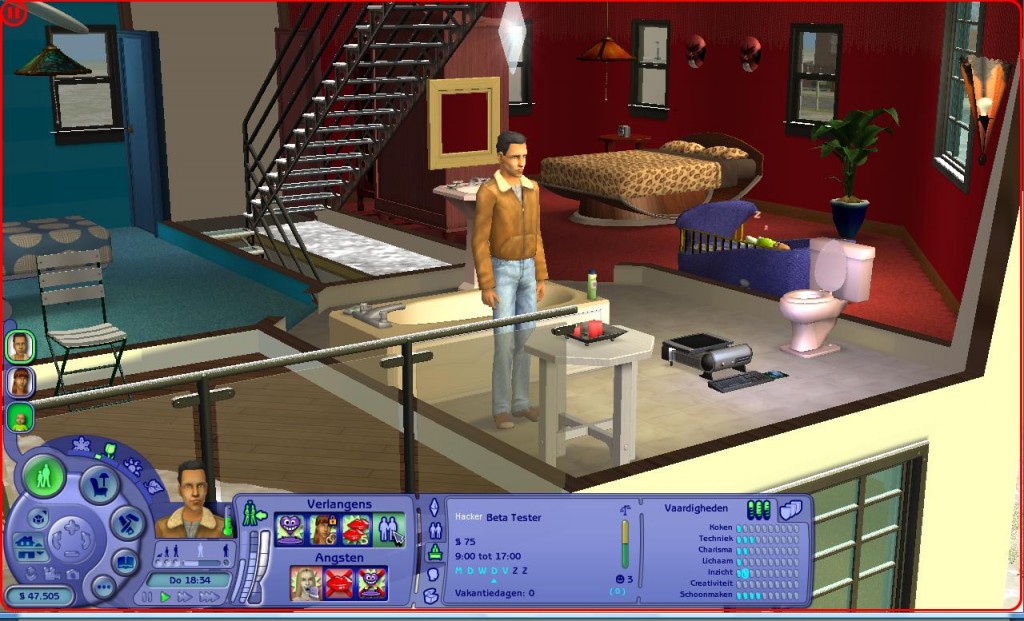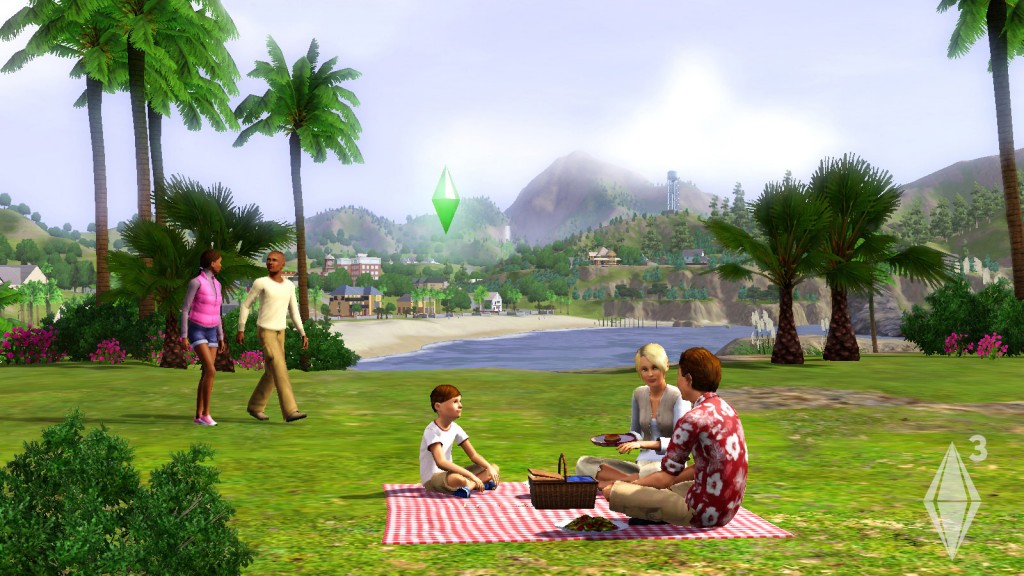I hardly remember which one of today’s most renowned PC makers I bought my first computer from in 2001. It actually was a no-brand-name computer assembled by a computer-geek friend of my parents. Until now, it still seems to me that the most impressive features I got on the computer were that it had a Pentium 3 processor, a 20GB memory hard drive, and a strong video card that later introduced me to the amazing world of technology.
Most of my time on the computer from 2001 to 2003 I spent on scrambling through freeware such as wallpaper switcher/managers, live screensavers, music downloader, and other software that claimed to boost my PC’s performance. I suspect that all the constant installing and then removing software could hurt my computer, so I was rather surprised that my PC survived me for 8 years after much damage.
I had never played many computer games until mid 2004 when a friend of mine introduced me to The Sims 1. Since then it became my favorite game. The Sims is a simulation game that replicates the American daily suburban life in which players can manipulate their characters (called Sims) through various actions such as eating, going to the bathroom, sleeping, dating, etc. I find many American social norms and lifestyles represented in the game, thus as I naturally learned to navigate through my characters’ behaviors, I also learned to adapt the American ways (culturally, aesthetically, architecturally). In addition, the language used in the game further familiarized me with a more sophisticated level of English. That helped me avoid almost all of the cultural shocks when I first came to theU.S.for college.
While traditional education in Asian countries doesn’t emphasize recreation in the learning process, I reckon that playing The Sims had one of the most important influences in determining my personal growth. It allowed me to experience different ways of living and behaving, and it reflected my true nature as I realized that many Sims I created shared the same characteristics or did the same activities (yes, mostly nerdy things). Many rewards or achievements in the game required very tedious and diligent playing, which actually could be attained by genuine tricks, hacks and cheats. Such trivial and common activity (hacking) in working with computers suddenly brought me to a new understanding: certain real life goals could also be reached by knowing the shortcuts and getting creative with the procedures of doing them. It is not unethical to always try to hack a task, or find a shortcut. It is what I call Optimization, which is the core concept in Economics of how to survive in such a world scarce of resources. There is no accident I am an Economics major.
As The Sims evolved, it became more close-to-real-life than previous versions. Of course, the realistic aspects (mundane yet practically time-consuming such as doing laundry, going to get groceries, maintaining friendships/relationships, etc) are carefully selected due to the limitations of visual rendering. Nevertheless, I continuously learn about my life through the game. If I hadn’t played The Sims, I would have had a very hard time shaping my critical thinking skills or taking the concept of optimization to heart. I would not even be here, which is a prestigious position compared to where I came from. On a personal and cultural level, I would have had a tougher time trying to fit in, making friends and understanding life here. After all, isolated as most computer users have always been, I was indeed connected to a larger society through a virtual life game. And I think my time consumed in playing this singular was extremely well worth.
Graphic and activities were not the best, but it was at the frontier of simulation games at the time and thus, caused much addiction and thirst for exploration.
The graphic has gotten much better and the game story is more developed. This snapshot of a student zombie who pulled an all-nighter was taken from the University Life expansion pack. Each base game has many expansion packs with new additional objects, architecture designs, and functions. Today The Sims has published 3 base games; the latest version is The Sims 3.
The graphic is astoundingly realistic with beautiful building tools for both architecture and landscape. I also learned interior designs and construction in the game.




It’s cool that the Sims was useful for learning English and American culture! I think that in our current society, when compared to other more established mediums like books and movies, video games still have a bit of a bad reputation. My hope is that in the future they will come to be considered just as “sophisticated” and culturally expressive as other art forms.
I love the Sims because it’s kind of a simple premise but people take it in all sorts of different directions. I remember having fun using its video recording tool to make simple films with my characters.
Oh yes, I agree most video games don’t have reputations for educating young people about the world. But the Sims does an outstanding job. And by “sophisticated English” I meant expressions like “throw a party”, “toggle the lights on”, “form a group for outing”, etc. Those I could never find in my English textbooks. The Sims was a realistic cultural context for learning the language they’re using, it’s all. :) I think I should learn to make videos using my Sims as well, that sounds interesting.
I didn’t know you play the Sims, Mai! I love that game, definitely a worthwhile pass-time! Hope your life-hacking is going well!
They should make a sims about dogs